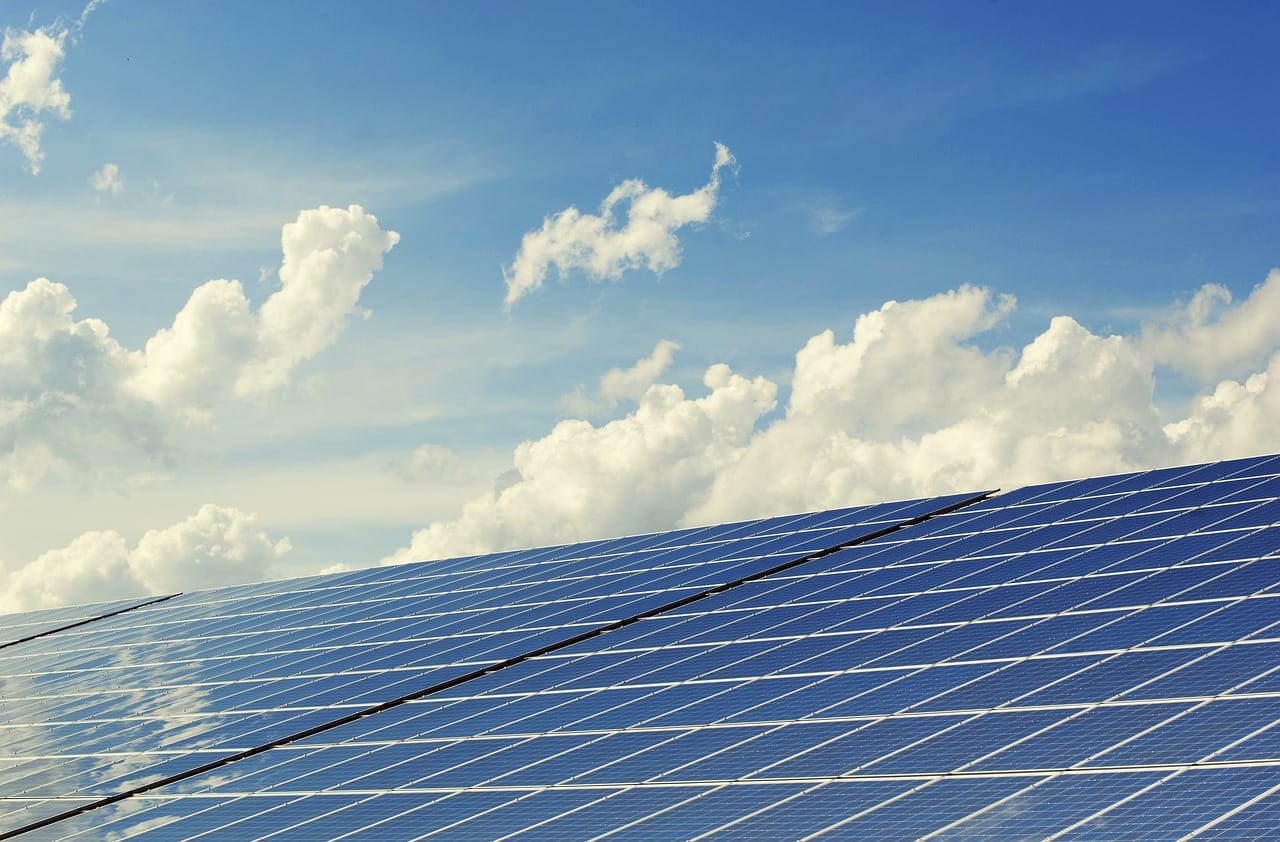Renewable Energy's Role in Economic Development
Discover how renewable energy fuels economic growth. Explore the impact of sustainable solutions on development and prosperity. Embrace a greener future

Introduction to the economics of renewable energy transition
The transition from fossil fuels to renewable energy sources is crucial for achieving a sustainable future. However, this shift presents various economic challenges that need to be overcome. In this article, we will explore the economics of renewable energy transition and discuss the opportunities it brings for green energy in the sustainable development landscape.
Economic challenges in the transition to renewable energy
The transition to renewable energy is not without its economic hurdles. One of the major challenges lies in the initial high costs of implementing renewable energy technologies. Solar power and wind energy, two key renewable energy sources, require substantial investments in infrastructure and equipment. Additionally, the intermittent nature of these sources poses challenges in maintaining a stable energy supply.

Another economic challenge is the need for market transformation. The existing energy infrastructure is primarily built around fossil fuel-based systems, making it difficult to integrate renewable energy sources seamlessly. Market regulations and policies need to be restructured to incentivize the adoption of renewable energy and encourage investment in clean technologies.
Opportunities for green energy in the sustainable development landscape
Despite the economic challenges, the transition to renewable energy also presents significant opportunities for green energy. The global energy shift towards clean energy opens up new markets and job opportunities. The renewable energy sector has the potential to drive economic growth while reducing carbon emissions.
Moreover, renewable energy sources are more decentralized compared to traditional energy sources. This decentralization allows communities and individuals to become active participants in the energy production process. By generating their own energy, individuals can reduce their reliance on centralized power grids and contribute to a more sustainable future.
The role of energy economics in the renewable energy transition
Energy economics plays a crucial role in the renewable energy transition. It involves the study of supply and demand dynamics, pricing mechanisms, and policy interventions in the energy sector. Understanding the economic implications of transitioning to renewable energy is essential for effective decision-making and policy formulation.
Energy economists analyze the costs and benefits associated with renewable energy technologies, considering factors such as capital investments, operational expenses, and potential savings. They also assess the economic impact of renewable energy on various stakeholders, including consumers, businesses, and governments.
Key renewable energy sources - solar power and wind energy
Solar power and wind energy are two key renewable energy sources that have gained significant traction in recent years. Solar power harnesses the energy of the sun through the use of photovoltaic cells, while wind energy converts the kinetic energy of wind into electricity.
Solar power has experienced a rapid decline in costs, making it increasingly competitive with traditional energy sources. The advancements in solar panel technology have improved efficiency and scalability, making solar power a viable option for both large-scale installations and residential use.
Wind energy, on the other hand, benefits from the abundance of wind resources globally. Wind turbines can be installed onshore or offshore, providing a versatile and scalable energy solution. As technology improves, wind energy continues to become more efficient and cost-effective.
The global energy shift towards clean energy
The world is experiencing a significant shift towards clean energy, driven by the need to mitigate climate change and reduce dependence on finite fossil fuel resources. Governments, businesses, and individuals are recognizing the importance of transitioning to renewable energy sources to achieve long-term environmental sustainability.
Countries around the globe are setting ambitious targets for renewable energy adoption. The Paris Agreement, signed by 195 countries, aims to limit the global temperature rise to well below 2 degrees Celsius above pre-industrial levels. This agreement has spurred increased investment in renewable energy and has catalyzed market transformation.
Market transformation and investment in renewables
Market transformation is a crucial aspect of the renewable energy transition. As the demand for clean energy grows, markets need to adapt to accommodate renewable energy sources effectively. This transformation involves a shift in investment patterns and a restructuring of the existing energy infrastructure.
Investment in renewables is key to driving market transformation. Governments, businesses, and financial institutions need to channel funds into renewable energy projects, research and development, and infrastructure development. By providing financial incentives and support, governments can encourage investment in clean technologies and accelerate the adoption of renewable energy.
Environmental sustainability and the importance of renewable energy
One of the primary drivers of the renewable energy transition is the urgent need to address environmental sustainability. Fossil fuel combustion releases greenhouse gases into the atmosphere, contributing to climate change and air pollution. Renewable energy sources, such as solar power and wind energy, produce minimal or no emissions during operation.
By shifting to renewable energy, we can significantly reduce carbon emissions and mitigate the impact of climate change. Furthermore, renewable energy technologies have a smaller ecological footprint compared to fossil fuel-based systems. They have a lower water consumption, reduce land degradation, and minimize the risk of oil spills or nuclear accidents.
Energy policy and its impact on economic growth
Energy policy plays a crucial role in shaping the renewable energy transition and its economic implications. Governments have the power to influence the market dynamics through policy interventions and regulations. By implementing supportive policies, governments can create a favorable environment for renewable energy adoption and stimulate economic growth.
Policies such as feed-in tariffs, tax incentives, and renewable portfolio standards encourage investment in renewable energy and promote market competitiveness. Additionally, research and development funding can drive technological innovation in the renewable energy sector, further enhancing economic growth and job creation.
Technological innovation driving the renewable energy transition

Technological innovation is a driving force behind the renewable energy transition. Advances in renewable energy technologies have made them more efficient, reliable, and cost-effective. Research and development efforts have led to breakthroughs in energy storage, grid integration, and smart energy management systems.
Energy storage technologies, such as batteries and pumped hydro storage, play a crucial role in overcoming the intermittency of renewable energy sources. These technologies enable the storage of excess energy generated during peak production times for use during periods of low production. This enhances the reliability and stability of renewable energy systems.
Energy efficiency and its role in climate change mitigation
Energy efficiency is a vital component of the renewable energy transition and climate change mitigation. By improving energy efficiency, we can reduce the overall demand for energy and optimize the utilization of renewable energy resources. Energy-efficient technologies and practices help to minimize energy wastage and lower greenhouse gas emissions.
Energy-efficient buildings, appliances, and industrial processes contribute to significant energy savings. Additionally, energy management systems and smart grids enable better monitoring and control of energy consumption, further enhancing efficiency. Combining renewable energy adoption with energy efficiency measures is a powerful strategy for achieving sustainable and resilient energy systems.
Carbon emission reduction through renewable energy
Renewable energy sources play a crucial role in reducing carbon emissions and combating climate change. Fossil fuel combustion is the primary source of carbon dioxide emissions, contributing to global warming. By replacing fossil fuel-based electricity generation with renewable energy sources, we can significantly reduce carbon emissions.
Solar power and wind energy produce electricity without emitting greenhouse gases, making them clean and sustainable alternatives. Increased adoption of renewables can lead to a substantial reduction in carbon dioxide emissions, helping to mitigate the impacts of climate change and create a healthier environment for future generations.
The importance of energy infrastructure in the renewable energy transition
Energy infrastructure plays a pivotal role in the successful transition to renewable energy. The existing energy infrastructure, designed around centralized power generation and distribution, needs to adapt to accommodate decentralized renewable energy systems. Upgrading and expanding the grid infrastructure is essential to enable the integration of renewable energy sources seamlessly.
Investment in energy infrastructure, including transmission lines, substations, and energy storage facilities, is necessary to ensure the reliable and efficient delivery of renewable energy. Additionally, the development of microgrids and smart grid technologies can improve the resilience and flexibility of the energy system, enabling efficient management of renewable energy flows.
Renewable energy markets and their potential for economic growth
Renewable energy markets present significant opportunities for economic growth. The shift towards clean energy creates new markets for renewable energy technologies, products, and services. These markets not only drive job creation but also stimulate innovation and entrepreneurship.
Investment in renewable energy projects generates economic activity and attracts private sector investment. The renewable energy sector requires a diverse range of skills and expertise, creating employment opportunities across various industries. Additionally, the export potential of renewable energy technologies can contribute to trade balance and economic competitiveness.
A pathway to a sustainable future through the economics of renewable energy transition
The economics of renewable energy transition present both challenges and opportunities. While there are initial costs and market transformation barriers, the shift towards renewable energy sources offers significant environmental, social, and economic benefits. By overcoming the economic challenges and leveraging opportunities, we can pave the way to a sustainable future.
The transition to renewable energy requires collaborative efforts from governments, businesses, and individuals. Supportive policies, investment in research and development, technological innovation, and energy efficiency measures are key factors in driving the renewable energy transition. By embracing renewable energy, we can achieve a cleaner and more sustainable energy landscape, ensuring a better future for generations to come




